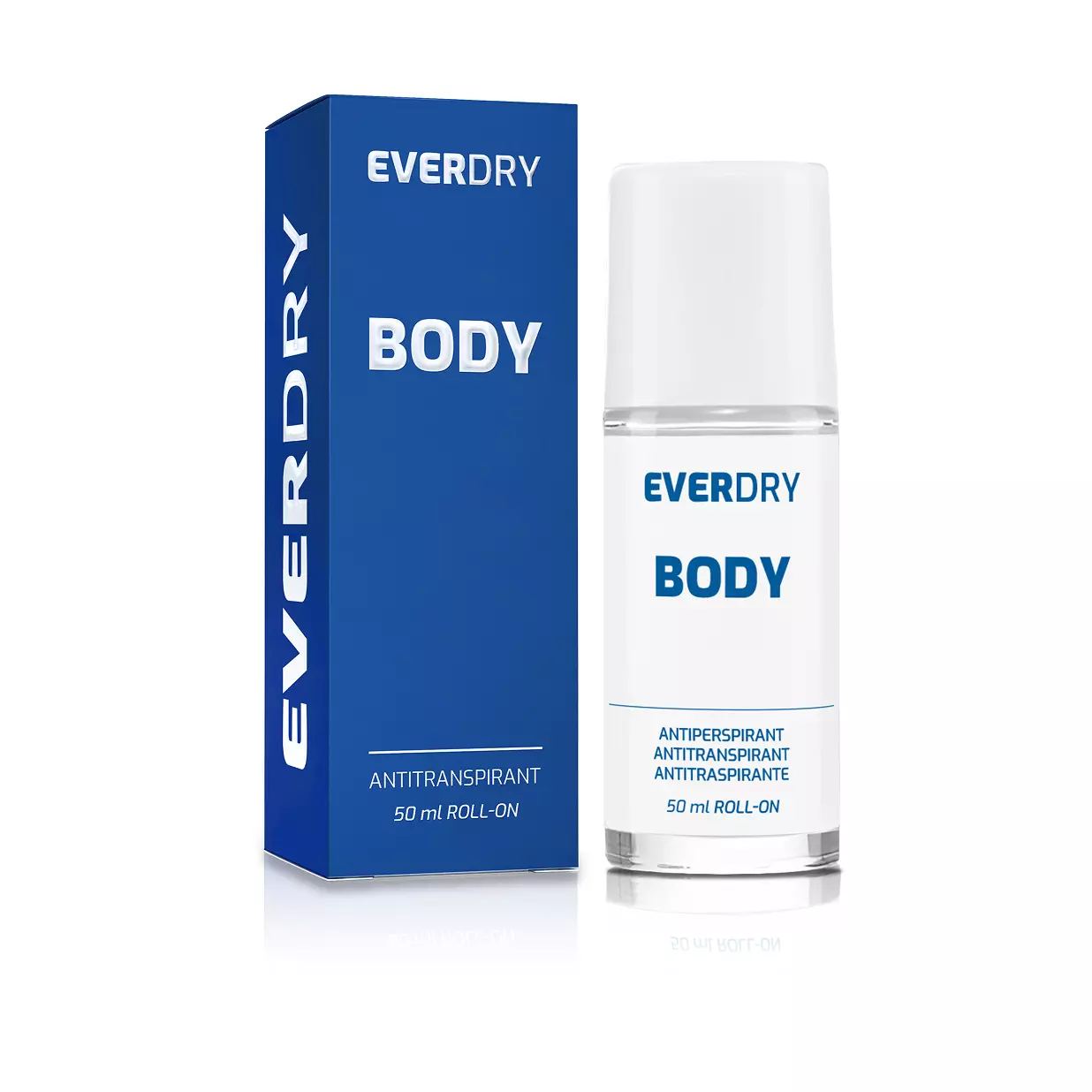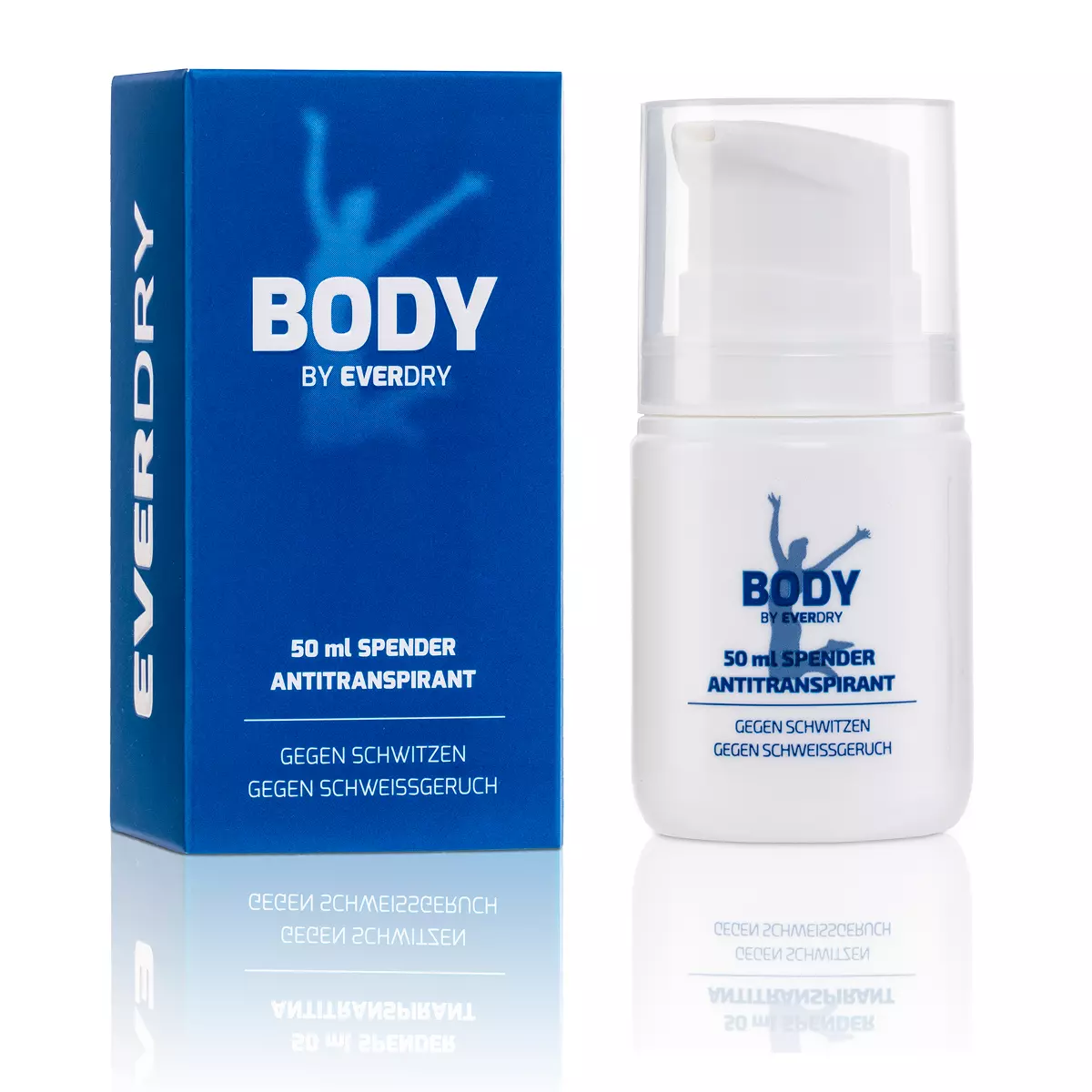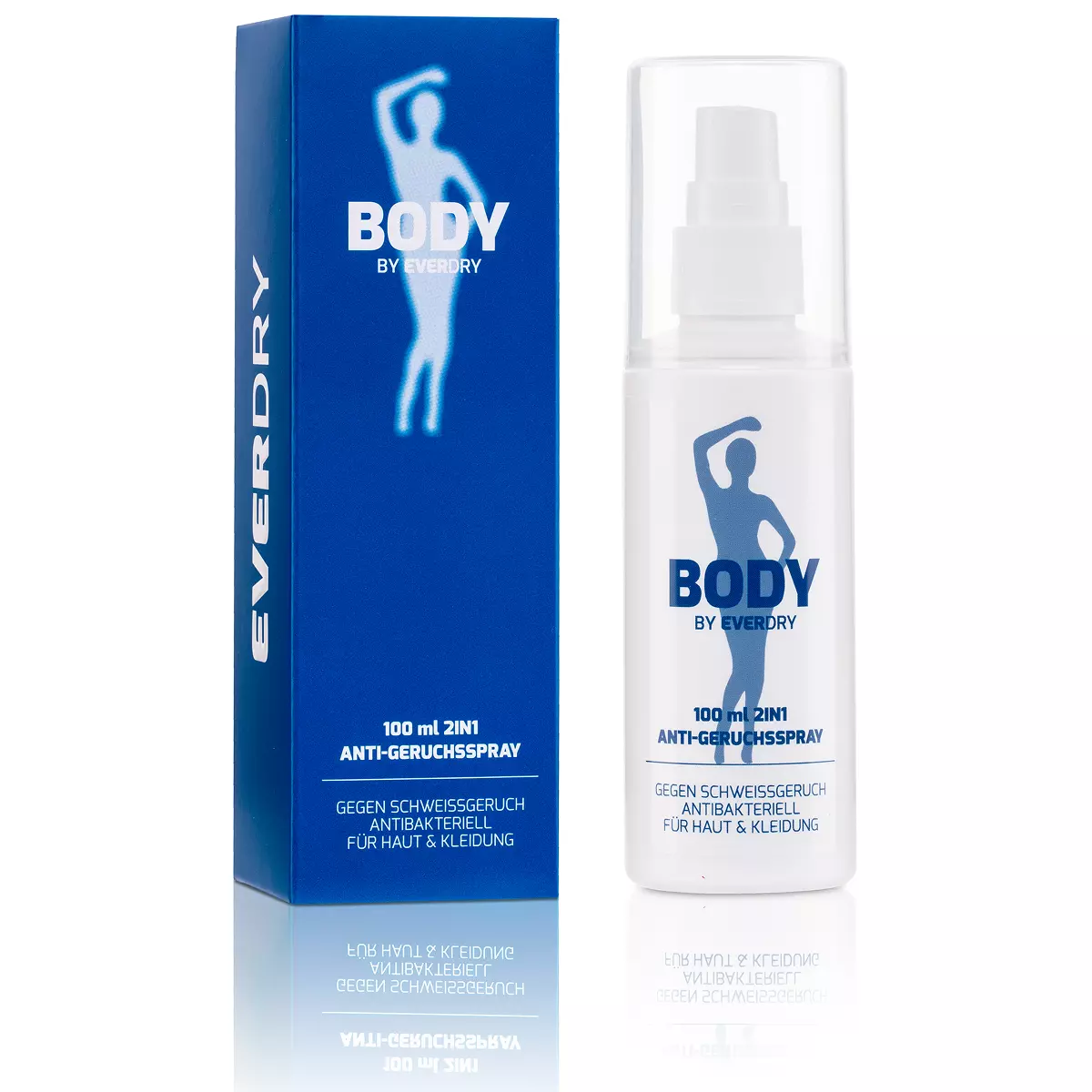In a Nutshell: Key Takeaways
Myths or Facts About Heavy Sweating?
This text sheds some light on common myths and misconceptions surrounding excessive sweating.
Sweating – no one wants it, everyone does it, and everyone talks about it.
Yet, sweating is a completely natural and even vital process.
Through the evaporation of sweat, the body is cooled and thus protected from overheating.
There are many misconceptions about sweating and body odour.
We've listed and clarified the most common ones for you here.
1. You can detoxify your body by sweating.
False.
The human body exclusively disposes of toxins via the kidneys and liver.
However, the body eliminates many pathogens through its own immune defence. When fighting off invaders, we often react with a fever, meaning an increased body temperature. This then causes sweating to protect the body from overheating. However, this process has nothing to do with detoxification.
2. Sweating can reduce excess weight.
False.
You'll need to be strong now! Unfortunately, without exercise and a healthy diet, it just won't happen. Pure sweating alone, e.g., in a sauna, doesn't burn calories or fat in the body.
However, the body loses a lot of fluid through sweating: between 100 and 500 ml of fluid per day. With high exertion, it can be 1 to 2 litres or more. The fluid loss alone will then show a lower body weight on a scale. You should absolutely replenish this fluid loss by drinking plenty. This is vital! If you truly want to lose weight, you should eat healthily and exercise sufficiently to burn calories. Simply sitting in a sauna and sweating isn't enough.
3. Cold drinks help to prevent sweating.
False.
It would be nice if it were that simple. On hot days, just grab an ice-cold drink and not only your mind but also your body feels refreshed. Unfortunately, the exact opposite is true. While cold drinks cool our throat and stomach, we signal to our body that it's cold. Consequently, our metabolism speeds up and internal heat production is stimulated. Experts therefore recommend opting for lukewarm, non-chilled drinks even in extreme heat. The basic rule is: drinking plenty is very important!
4. Sweat always smells very unpleasant.
False.
Fresh sweat is virtually odourless. It's only when it's broken down by bacteria that the familiar unpleasant sweat odour develops. The bacteria break down long-chain fatty acids into smaller molecules like butyric or formic acid. Butyric acid is a fatty acid with a very unpleasant smell, similar to rancid butter. No wonder, then, that this sweat doesn't "smell good" to our noses, but rather seems intrusive.
However, there's a small exception, because sometimes fresh sweat does smell!
If a teenager suddenly develops an unpleasant "mouldy" smell, it could also be due to hormonal changes. During times of hormonal shifts, fresh sweat can sometimes smell unpleasant.
5. We sweat most heavily under our armpits.
False.
Less than 1 per cent of sweat is produced under the armpits. However, as the armpits are generally covered by the arms, the sweat produced there cannot easily evaporate and thus remains on the skin. This quickly leads to unsightly sweat stains on clothing. And as if that weren't bad enough, bacteria also have a very easy time here: the wet armpits offer them an optimal breeding ground, so an unpleasant body odour can also develop.
6. If I reduce sweating under my armpits, I'll sweat more elsewhere.
False.
Less than 1 per cent of sweat is produced under the armpits. Therefore, sweating under the armpits is hardly relevant to the cooling process. Since heavy sweating is usually only specifically reduced in certain areas of the body, such as the armpits, e.g., by using antiperspirants, there is no compensation in other parts of the body.
7. Non-athletes sweat faster and more heavily than athletes.
False.
The opposite is true: the fitter someone is, the sooner they start to sweat. Sounds bizarre? It's easily explained: as soon as the temperature of trained athletes rises even slightly, the cooling process, i.e., sweating, begins immediately. This causes the body temperature of athletes to rise much more slowly, leading to higher performance. Colloquially, we then speak of "good fitness". So athletes sweat faster and more, but much more efficiently than non-athletes. You can also read our detailed guide "Sweating during sports" on this topic.
8. We don't sweat in winter.
False.
In every season, there are more or less situations in which the body has to regulate its own temperature. Even in winter! Just think about the following situation: it's wintry cold outside. So that you don't freeze on your way to work, you dress warmly in the hallway: hat on, scarf on, winter boots and thick winter jacket... and off you go! Quickly out of the warm house. With thick clothes, it's far too warm inside. Outside it's then much more pleasant... almost too cold again. So quickly put on your gloves and get on your bike. Since winter clothes often have the disadvantage of being less breathable, the skin underneath cannot circulate as well. And although your nose is freezing cold, you still get quite a sweat on your body due to the effort of cycling. So... finally arrived at the office, just quickly park your bike and into the warm office. But with the first step into the office, you are literally overwhelmed by the warm heating air. The temperature difference between inside and outside is simply too great. Before your back gets completely soaked with sweat, quickly get out of those warm winter clothes.
Especially in winter, the often very large temperature differences and warm, less breathable winter clothing cause us problems. For this reason, we often sweat even in winter. Therefore, opt for breathable functional clothing not only when exercising, but especially in winter.
9. Women and men sweat equally heavily.
False.
When it comes to sweating, equality fails, because men generally sweat faster and more heavily. But dear ladies, be honest? In this case, you'd gladly forgo emancipation, wouldn't you? But why is that? It's easily explained. The male hormone "testosterone" is responsible. It opens the sweat ducts, so men start sweating faster and also secrete more sweat. The female hormone "oestrogen" does the exact opposite.
Only during hormonal changes, the so-called menopause, when the proportion of the male hormone also increases in women, do women then tend to sweat more. Hot flushes and sweating attacks are then commonplace. But don't be discouraged: once menopause is over, heavy sweating usually regulates back to a normal level. You can find out what you can do about heavy sweating during this phase in our guide "Sweating during menopause".
10. Sweat glands function the same in all people.
False.
While the number of sweat glands is approximately the same in all people (approx. 3 million), the intensity of their function differs greatly depending on living conditions. Depending on the phase of life, physical condition and life situation, sweat production can be very different. A person's origin also plays a role. For example, South Africans sweat on average less than Europeans. In this example, the South African's body has learned that water is not unlimited. Therefore, it must handle its fluid loss very carefully in order to maintain body functions.
Erstmals publiziert am: 12.05.2011
Aktualisiert: 27.05.2025

Content: 0.05 Liter (€398.00 / 1 Liter)

Content: 0.05 Liter (€398.00 / 1 Liter)



